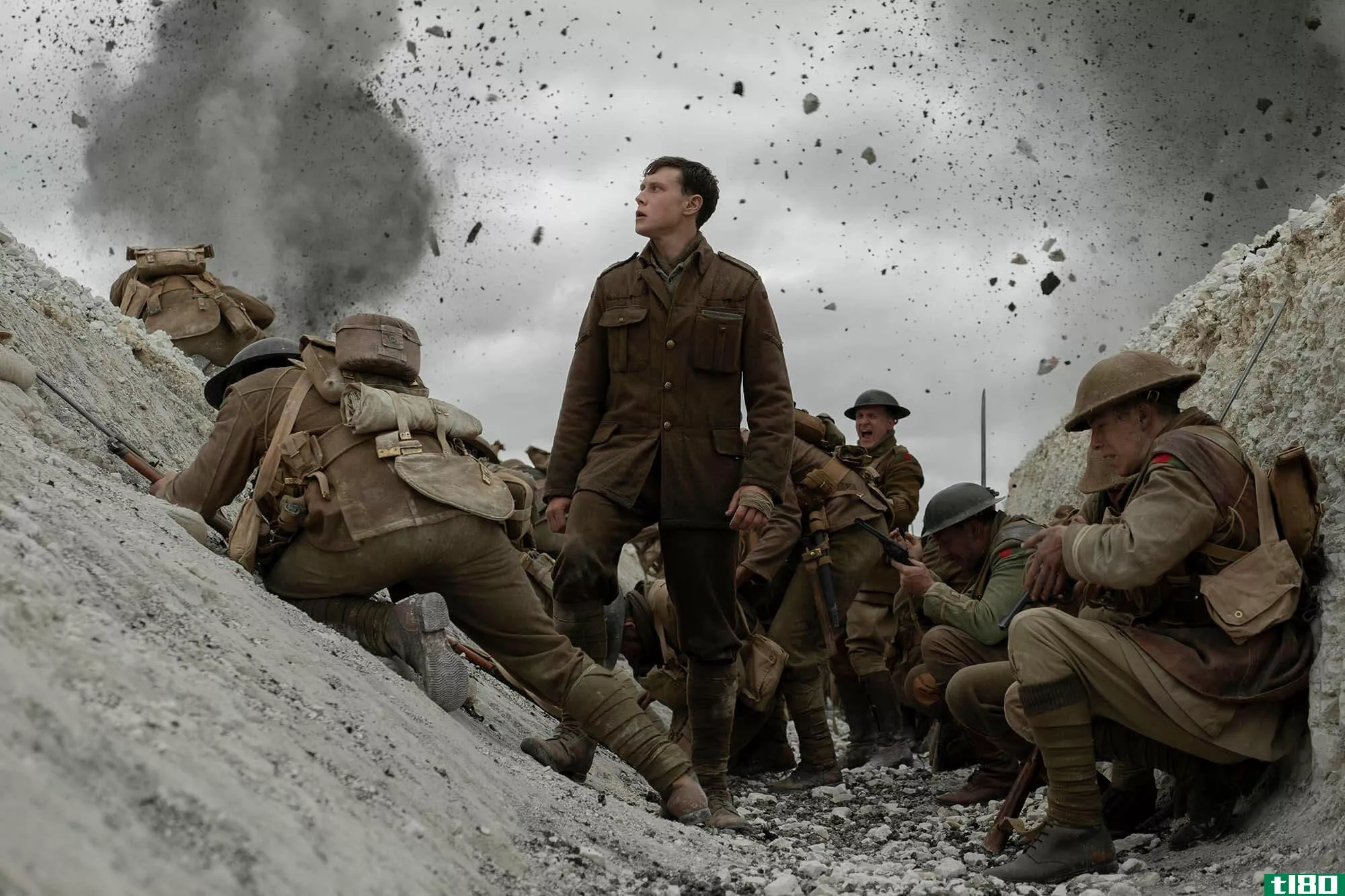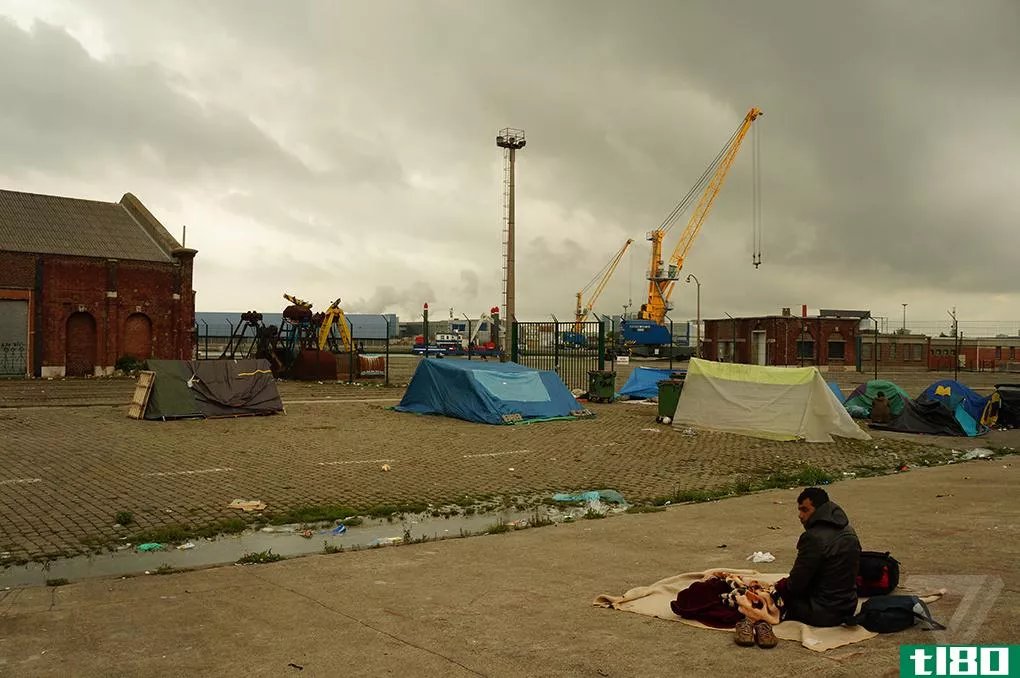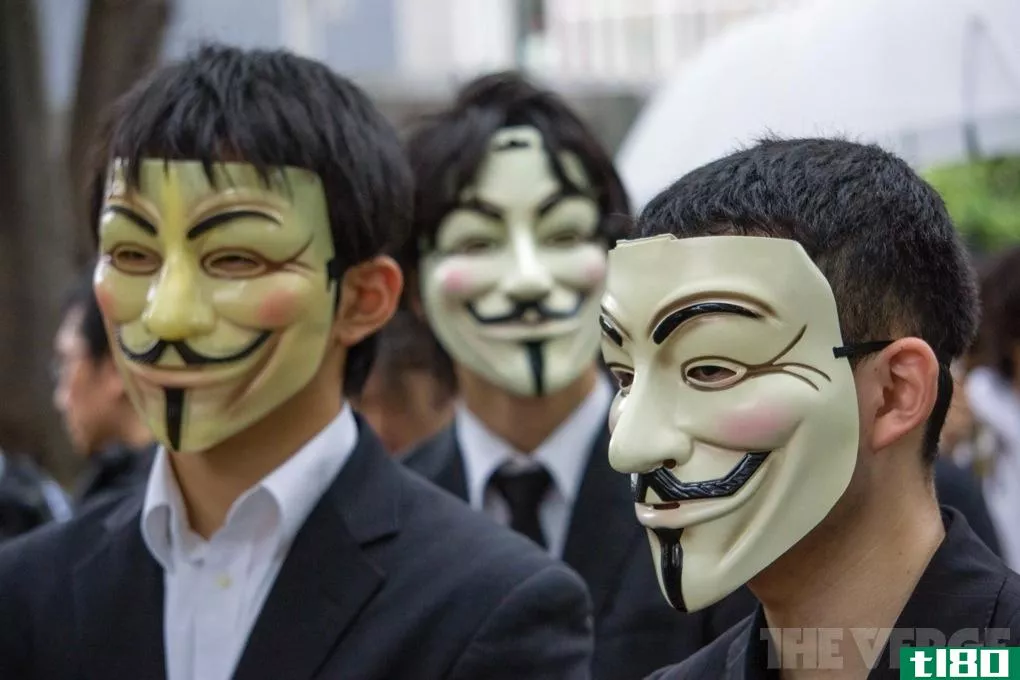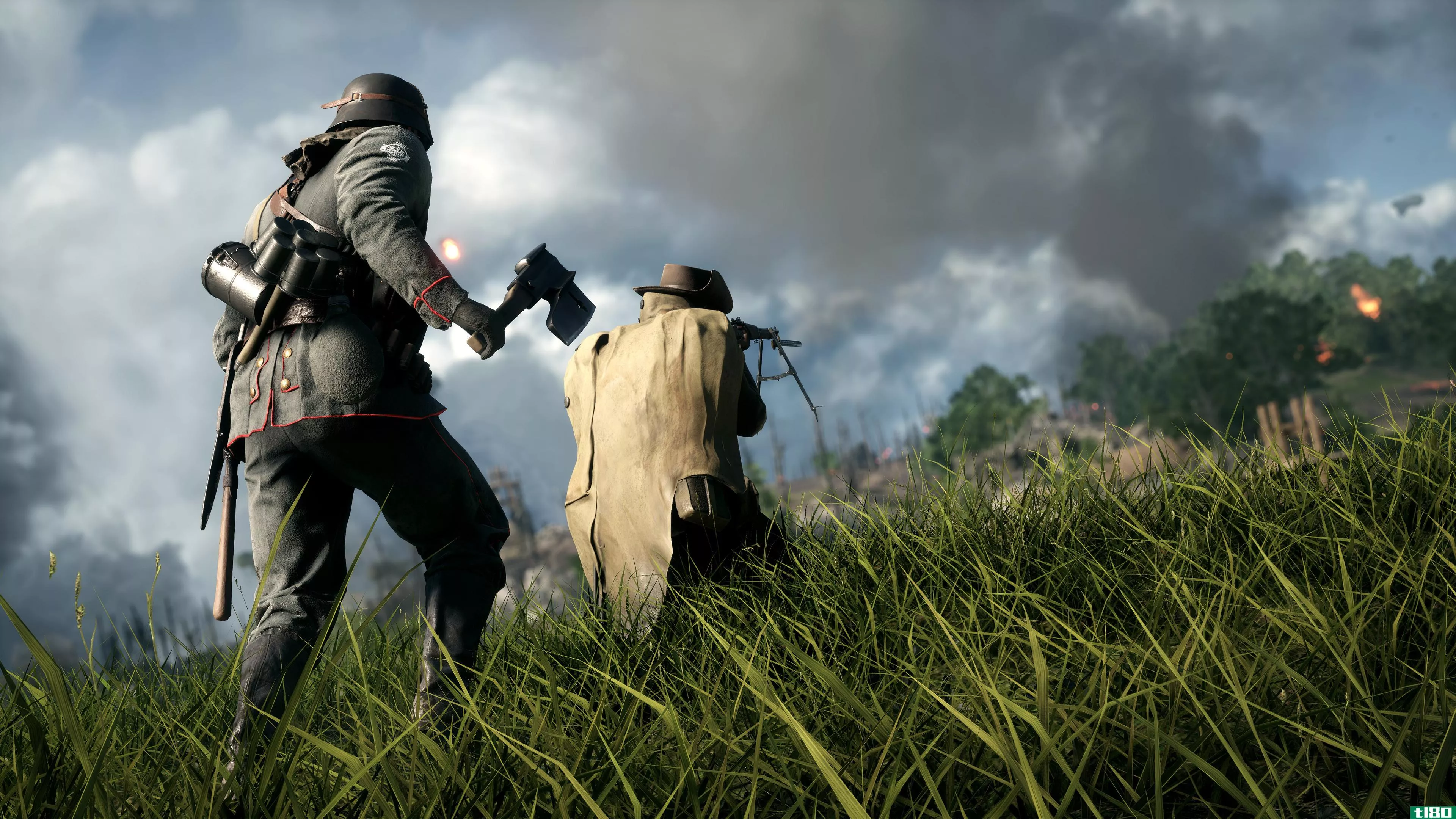在饱受战争蹂躏的东京第九车站,两名不太可能的警察结对侦破谋杀案
在不久的将来的第九步站,东京经历了一场巨大的灾难,使其陷入混乱,迫切需要国际援助。该国被世界主要大国瓜分,每个大国都用无人机和维和人员在各自的地区边界巡逻。在这种环境下,美国海军中尉艾玛·海加希和一位名叫宫古·柯里达的当地警官结成伙伴,在全市范围内共同策划了一系列谋杀案。
他们的冒险故事将在一个由11部分组成的系列中讲述,该系列由马尔卡·奥尔德、弗兰·王尔德、杰奎琳·小柳和柯蒂斯·C.等著名作家组成。陈。Serial Box不是传统的出版商。它的小说创作方法是讲述一个像电视节目一样的长篇故事:独立的、独立的部分,按照故事中的人物,一点一点地构建一个较长的故事。该公司已经通过连续剧《焚书者》、《从寒冷中走出来的女巫》等创造了令人印象深刻的业绩记录。
用户可以购买单独的连续剧,可以订阅一季,也可以在季末一次性购买。然后,他们可以在网上、Serial Box的iOS应用程序(Android即将推出)中阅读每期文章,或者以ePub、.mobi、PDF或MP3有声读物格式下载每期文章。
《第九步车站》是该公司最新推出的一部连续剧,融合了近期科幻小说和警察程序片。从1月9日开始,该故事将以电子书和有声读物的形式在Serial Box上发布。下面,你可以阅读本季第一集的摘录:“无脸的身体”,由Malka Older执导。
The streets were rain-slicked and icy, but in Marunouchi, safely in the US zone of Tokyo, that was no deterrent. In the dark after-work hours, its tiny bars, ramen counters, karaoke boxes, and hostess spots were crammed with salarymen spending an extra few hours laughing at their superiors’ jokes or drinking off the stress of their jobs. A few spilled into the chilly streets, arguing drunkenly under one of the streetlights that still illuminated or checking for updates on their sleeves. Garish signs gleamed from every building, one over the other in tapestries of contrasting calligraphy. There were pockets of darkness, victims of the spike in energy prices or the drop in population. But on the whole, calamity and war increased the market for oblivion-tinged entertainment.
Even the bounty of the US zone was not endless. The metro—those lines that still ran in this divided city—closed at midnight, cutting short a ritual that, pre-war, would have gone on into the early hours of the morning. From eleven thirty until midnight, men and the occasional severely suited woman poured out of the cramped establishments. They flooded roads, bought last-minute snacks, pushed intentionally or unintentionally against each other like molecules in boiling water. They filtered in unsteady gushes under the archway announcing the west entrance of the shopping district, cracked in the 2031 Nankai earthquake and still unrestored a year and a half later. They stumbled across the street to the Kanda metro station, where the late-night rush hour bottlenecked into a tightly packed fumble toward the turnstiles.
Easy, in that crowd of black suits and narrow ties, to feel anonymous. Easy, once one had noticed the target slurping cheap ramen at a street-level establishment, to hover outside until he left. Not terribly difficult to keep him in sight through the crowd. All too easy, in the dense crush of the metro station, to unsheathe a knife close to the hip, where it would be invisible to the security cameras. Easy to jab it once, twice, three times into a dark raincoat-clad back.
The stabbed man stumbled, was held up briefly by the press of the crowd, then slipped down to his hands and knees. There was a moment of disturbance in the flow as people stepped around his huddled form; then he slid completely to the ground. The energy-saving lights were dim; the people were drunk; the last train was leaving soon. No one noticed that they were stepping on a corpse.
第一幕
Miyako Koreda tapped her sleeve against the panel by the door of the Tokyo Metropolitan Police Department headquarters in Kudanshita, clocking in. After the old headquarters in Kasumigaseki were bombed in the final days of China’s brief, partially successful attempt to add the capital to its territory, this office building off Yasukuni Dori had been pressed into service as a temporary headquarters. It was a good location, hard up against the narrowest stretch of the ASEAN buffer zone, with good transportation opti*** to most of the American-administered eastern half of the capital, and close to the Yasukuni Shrine, which everyone expected to be a flash point one day or the next. But although someone had been thoughtful about which interior walls to knock down, Miyako still expected the old office every time she walked through the door, and the layout felt odd.
“Ohayo gozaimasu,” Miyako called into the scattered desks of the fourth-floor Criminal Investigati*** bureau.
“Ohayo!” the greetings chorused back.
“Ohayo, Koreda-san,” said a heavyset man in his fifties, passing the door on his way back to the desks.
“Yamada-san,” Miyako replied, following him in. “What are you working on?”
“The Shiodome arson case,” he answered. “You?”
“Paperwork for that theft in Odaiba.”
“Got someone?”
Miyako nodded. “Looks like we might be able to pin a few other thefts on him too.”
Miyako slung her dark wool coat onto the hook by her desk and went to the tea station. The leaves in the pot were soggy, and she dumped them into the sink, rinsed the strainer, and sifted in a new, fragrant layer from the tin. While she waited for the water to heat, Miyako browsed the snack offerings in lieu of breakfast. She selected a **all sweet-potato-stuffed cake—rare now that Kyushu was held by China; she wondered who had bought that—and a handful of sour plum–flavored hard candies. In her right ear, the news broadcast burbled its comforting hum.
She sat down at her desk, lukewarm cup in hand, and started to fill in the paperwork on the Odaiba arrest, speaking the answers into the voice recognition on her sleeve. Something in the newscast caught her attention on a subliminal level, and Miyako turned the volume up slightly and jumped back ten seconds.
. . . the ASEAN representative in Tokyo made a statement condemning recent Chinese rhetoric. Miyako waited, eyebrows hoisted like the cables on a suspension bridge, but the story ended with that. There wasn’t even a resp***e from China. The news announcer chattered on, and Miyako lowered the volume again to the point where the words were barely intelligible and all she was aware of was the c***tant, unpanicked tone.
Nobody had started a war.
Then again, nobody had started a war.
Before she could get back to her paperwork, her sleeve sent a tingle along her forearm. That manufactured sensation triggered, as always, an echoing fizz in her gut, the combination of nerves and anticipation that came with every new case. Miyako slid her finger along the edge of her sleeve to bring up the details, and her pulse jumped again as she saw the crimson color-coding: a murder. Violent crime had ticked up since the war, but murders were still rare. Nobody was happy when it happened, but Miyako couldn’t deny the excitement of solving one.
Standing to pull on her coat, she flipped quickly through the template sent by the responding officer: body found in Kanda Station; multiple stab wounds; no identification. She paused. This might be interesting.
Then again, it might mean hours stuck with the remnants of the city’s facial and fingerprint database, in tatters since the earthquake.
In any case, this murder wasn’t going to solve itself. Miyako was on her way to the door when her sleeve vibrated with a different type of alarm. Annoyed, she glanced at her forearm again. Report to my office immediately, read the message.
The Superintendent of Criminal Investigati***, Hideo Nishimura, was tall and even-featured and had probably been handsome in his youth, but the years at the desk showed in his growing corpulence and a certain slowness in breaking inertia. When Miyako walked into his office thirty seconds after receiving his message, however, he was already standing, his coat on.
“Sir?” Miyako asked, hesitating by the door. “I was about to head to a crime scene . . .”
“That situation in Marunouchi,” Nishimura said. “I know. They’re going to have to give you a few extra minutes. I need you to come with me to the Japanese sector first.”
“Of course,” Miyako answered unenthusiastically. The Japanese sector was mainly Kasumigaseki—that and the imperial palace, closed since the royal family had moved to the relative security of Sapporo—and Kasumigaseki was all ministries and government offices and the Diet. Little good ever came out of going there.
Nishimura waggled his eyebrows at her. “You’re going to be part of a special new pilot program.”
Waiting for the trap to spring, Miyako said nothing.
“The US embassy has asked us to allow one of their peacekeepers to join our investigative team. I’m partnering them with you.”
Whatever Miyako had expected, it wasn’t that. She remembered when the peacekeepers had arrived, as part of the unrolling of the US’s “friendly” occupation of the parts of Tokyo not taken by China. It had seemed hopeful then, like the world was going to take China’s egregious aggression seriously. But of course by that time there was already peace, the peace of China having gotten what they wanted for the moment, and Miyako hadn’t heard anything about the unit since.
“Come on,” Nishimura said, taking his narrow-brim hat from the hook on his door. “We’ve got to get over there so you and your new partner can head to the crime scene.”
“Sir,” Miyako started, but decided not to continue until they had traversed the squad room. The stairwell was empty. “Sir, a peacekeeper? Don’t they have better things to do?”
“We’ve had nine months of peace, Koreda,” Nishimura said, plodding down the stairs ahead of her. “Perhaps they’ve gotten bored.”
“This person won’t know anything about police work!”
“Apparently the person they are sending has a background in the military police.”
“It’s not the same!” Miyako said. She didn’t bother mentioning her main objecti***: that she liked to work alone, and that she definitely did not like working with loud, uninformed outsiders. Nishimura already knew the first and would assume the second. “And they won’t know Tokyo. Does this person even speak Japanese?”
“It’s because they don’t know Tokyo that they want to pair with us. Besides, they know we’re understaffed since the attacks and they’re trying to help.”
Miyako made a nonverbal noise of disagreement.
Nishimura sighed. “Okay, they’re probably not trying to help out of the goodness of their hearts, but I don’t have much choice on this one, Koreda, so let’s make the best of it, shall we?” They reached the ground floor, but Nishimura hesitated before pushing the heavy door out into the lobby. “I was going to stick this on Fukuda, but today when they finalized it, they told me that they’re sending a woman. I know how sensitive Americans can be about seku-hara; I thought I’d better partner her with a woman.”
Miyako refrained from commenting.
The US embassy was almost directly south of the Kudan area, on the opposite side of the imperial palace park. Miyako’s decades in Tokyo meant she automatically calculated a subway route on the Shinjuku and Namboku lines; her resistance to the current situation meant that it was only afterward that she remembered the Namboku line was almost entirely in the Chinese sector and no longer ran. Maybe Nishimura was better adapted, because he went directly to the Hanzomon platform without so much as a flinch.
The frigid air hit them again as they stepped out of the subway in Kasumigaseki between the large, guarded buildings of the national government ministries, now ruling a fraction of the country and bickering over what to do about the rest.
It was still early for government employees, and the sidewalk was almost empty. In the middle of the block, Nishimura stopped. “This is a ride along, an experiment in information sharing. We are not ceding them control. She follows you, not the other way around.” He nodded to himself. “It’s important to keep them happy. We can improve the relati***hip.”
Miyako nodded too. He was being as clear as he could about what he expected of her; whether she agreed was entirely beside the point. What bothered her was that it sounded like whether he agreed was just as irrelevant.
Once they had passed through the security-theater gauntlet required to enter the US embassy, they were immediately ushered to their appointment. The discreet plaque beside the office door read: Chief Liaison Officer to the Japanese Government, Charles Yardley III. The man who stood from behind the desk was younger than Miyako would have expected, and trim, with carefully rippled chestnut hair and an expensive suit. He bowed instead of shaking hands, as did his Japanese secretary, who had been seated in one of the chairs facing his desk. Miyako tapped her sleeve unobtrusively to turn her news feed down to the lower edge of audibility.
“Thank you so much for making this work on such short notice,” Yardley said in impressively **ooth Japanese. “I know we’ve been talking about it for a while, but the final authorization just came through and we wanted to put it into action as quickly as possible.” He cleared his throat gently. “I’m sure you’ll be wanting to, ah, get to know each other, but we were also hoping that you might direct some of your attention to an incident that occurred early this morning.”
The secretary wasn’t taking notes, but perhaps she had a recorder installed. Miyako observed her closely and caught something flash in her eye. Video, then. She repressed a shudder. She wasn’t anti-bodymodding, but the idea of someone plugging circuitry into their eyeball gave her the creeps.
“We have reports that a truck transporting a shipping container that had just been unloaded was hijacked shortly after it went through port security,” Yardley went on. “We believe it was taken into the Chinese zone, but since the hijacking itself occurred in the US sector, we were hoping you could help us gain some clarity over exactly what happened.”
Nishimura murmured something polite about being sure that they could provide some information about the situation.
“Excellent,” Yardley said. “Well then . . .”
The secretary spoke up. “Perhaps it would be better if you introduced us at this point.”
Her Japanese was clear but accented, and it was then that Miyako realized with a shock that she was not the secretary.
“Oh, of course,” Yardley responded **oothly. “Lieutenant Emma Higashi of the US Navy, seconded to the Brunei Accords Peacekeeping Force and, now, to the Tokyo Metropolitan Police Department.”
- 发表于 2021-08-26 21:28
- 阅读 ( 144 )
- 分类:互联网
你可能感兴趣的文章
1917年把一场噩梦般的战争变成了主题公园的展示
...一战电影被拍得像一个连续剧,在第一次现代战争中穿越饱受战争蹂躏的法国。在上周末金球奖上获得最佳剧情片奖后,很容易想象一个在即将到来的奥斯卡颁奖典礼上杀气腾腾的世界。它击中了很多正确的音符。《1917》是一...
- 发布于 2021-04-20 13:15
- 阅读 ( 140 )
欧洲对难民的战争:“我们像动物一样生活在这里”
...护,比前一年增加了近10万人,其中大部分(5万人)来自饱受战乱的叙利亚。专家说,大多数人选择目的地的依据是他们在那里可能拥有的人脉或社交网络,以及感知到的经济机会。他们也是典型的**——养家糊口的人,他们被...
- 发布于 2021-04-26 14:08
- 阅读 ( 154 )
“匿名者”就争议性谋杀案向泰国警方宣战
“黑客行动主义者”集体匿名组织(collective Anonymous)关闭了泰国警方下属的多个网站,以**两名缅甸移民工人被控谋杀和**的争议性定罪。该组织本周早些时候发布了一段37分钟的Facebook视频,敦促其追随者入侵15个不同的警察网...
- 发布于 2021-05-02 23:36
- 阅读 ( 178 )
德国警方因脸书仇恨言论突袭民宅
...机。该国去年接受了100多万寻求庇护者,其中大部分来自饱受战争蹂躏的叙利亚和伊拉克,引发了一些极右翼**和仇外暴力。皮尤研究中心(Pew Research Center)本周公布的一项调查显示,十分之六的德国人将难民与恐怖主义的增加...
- 发布于 2021-05-06 10:40
- 阅读 ( 154 )
战场1是一个反战信息困在一个畅销射手
...1》最好的多人游戏模式的特点一样,在一个精心设计和饱受战争蹂躏的环境中,你才会体验到看到坦克、飞机、马和人协同冲突的困惑。 最好的例子就是游戏中的刺刀冲锋。而卡通和滑稽血腥的同时代人,如战争齿轮的特点是...
- 发布于 2021-05-08 14:30
- 阅读 ( 138 )
东京如何侵入街道和地铁
...好,并且有公共公园和海滨。但是当tl80派了一个小组去东京寻找当地的黑客时,我嫉妒城市规划。东京有很多让人容易航行和愉快漫步的地方。盲人人行道指南最令人印象深刻的街道特征是沿着许多城市人行道的黄色地带,一...
- 发布于 2021-05-14 04:15
- 阅读 ( 184 )
连环杀手andrei chikatilo简介
...些罪行,在研究了尸体上的残肢后,很快确定至少有四起谋杀案是由一名杀手所为。当他们审问潜在嫌疑人时——其中许多人被迫承认了各种罪行——更多的尸体开始浮出水面。 1984年,当Chikatilo被发现试图在公共汽车站与年...
- 发布于 2021-09-03 20:32
- 阅读 ( 233 )
19世纪的十年接十年时间表
...威廉·亨利·哈里森一个月后死于肺炎。 1845–1847:爱尔兰饱受战争蹂躏大饥荒,刺激了一次大规模的移民到美国。 1848年12月:u、 美国总统詹姆斯k。波尔克确认已经发现了大量的黄金,并且黄金热袭击了成千上万赶往加利福尼...
- 发布于 2021-09-03 22:27
- 阅读 ( 269 )
历史上最臭名昭著的连环杀手
...很快将他与犯罪联系起来。在审讯过程中,他们发现这些谋杀案和所谓的山腰勒死者的谋杀案有相似之处。在警方向比安奇施压后,他同意提供他与布诺的全部活动细节,以换取无期徒刑而不是死刑。比安奇作证指控他的表弟,...
- 发布于 2021-09-04 03:55
- 阅读 ( 169 )
20世纪90年代的时间线和20世纪最后的欢呼
... 1991 1991年开始的沙漠风暴行动,也被称为第一次海湾战争。这一年,菲律宾的皮纳图博火山爆发,造成800人死亡,以色列从埃塞俄比亚空运了14000名犹太人。连环杀手杰弗里·达默被捕,南非废除了种族隔离法。1991年圣诞节...
- 发布于 2021-09-05 20:00
- 阅读 ( 186 )















